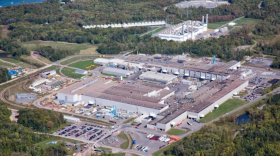Much of the world shut down in early March of 2020 as the nation grappled with an unknown virus capable of killing millions.
Upstate Medical University infectious disease expert Dr. Stephen Thomas was part of a group of local health and government leaders preparing for the pandemic five years ago. He recalls everyone taking it seriously, with the singular purpose of preparing Upstate New York for what could come.
That included some hard decisions. One of the biggest early on was the cancelling the yearly St. Patrick’s Day parade that brings thousands of people to downtown Syracuse.
“I think it sent a very clear message to people that this is really serious and we need to take steps, or a lot of people are going to get hurt and a lot of people are going to die,” said Thomas.
From there, reconfiguring hospitals became a massive engineering feat. Getting access and approval for therapeutics and vaccines was huge. Creating an infrastructure for testing, and vaccinations was monumental.
Thomas played a key role in developing Pfizer’s COVID-19 vaccine. Looking back, he said one of the lessons he learned involved the importance of communication between health experts and the public.
"I think there was a major failing there,” he said. “I think what happened was people were very, very confused. They didn't understand what people were telling them on TV. When you can't figure something out, then you go to someplace where you can understand what they're saying, which could be a celebrity, a website, a podcast, whatever it is, because people are trying to understand what to do. I don't think we did a great job with that."
He also believes the messaging from the federal government lasted too long and should have been localized much sooner. And Thomas isn’t very optimistic about the future preparedness for any kind of health emergency on the federal level, pointing to funding cuts for researchers, and high ranking Trump administration officials not well versed in how science works.
“We might be in a worse position than we are now than we were back in 2019,” said Thomas. “And it's all reactionary. It's reactionary to the things that did not go well and the decisions that were in retrospect not great decisions."
On the flip side, Thomas is confident that the infrastructures put in place five years ago across New York to deal with a terrifying new virus are still viable, leaving this part of the world ready for anything that comes.
"I think locally, I'm highly confident that if there was another thing, let's say a strain of influenza, that I think we could assemble and muster and very, very quickly put together the platforms and infrastructure and pick up the conversations necessary to do right by central New York."








